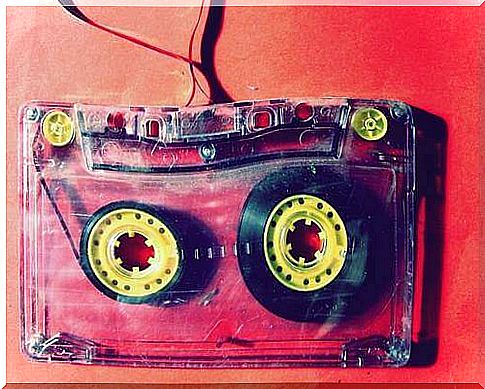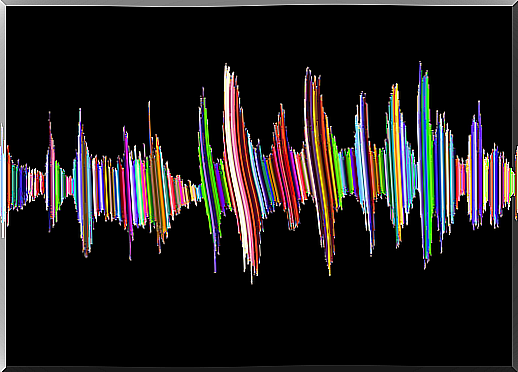Some songs just don’t come out of our heads and feel like we’ve fallen into an infinite loop. They don’t go away and repeat themselves relentlessly, like an insistent echo that binds us with its melody, lyrics and rhythm.
Sometimes their presence can be pleasant, but the situation becomes frustrating when the music in question is that trendy music that we don’t like, but that we hear on the street or in the mall.
We know the brain has its mysteries, but let’s admit that sometimes these puzzles are disturbing, especially when we experience phenomena beyond our control. It is known, for example, that 98% of people have already experienced this sensation.
However, studies such as the one carried out at the University of British Columbia in Canada indicate that 15% of cases are especially intrusive and irritating.
In these last situations, we are already entering the field of obsessive-compulsive disorders, in which music can act as something tremendously disturbing for the person.
However, for the rest, it is not alarming. It almost always becomes an anecdotal fact that we share in conversations with friends.

Why are there songs that don’t come out of our head?
Earworms, or earworms . This is the term psychologists use to define this phenomenon. Musical worms mold those catchy melodies that cling to our brains, and we can’t get rid of them.
Some people say that these phenomena are especially common with artists like Lady Gaga, Queen, Abba, Beyoncé, Adele, Coldplay, etc.
Now, if we have “musical worms” with these musicians and singers, it’s because the exposure to their music is greater. Because, in reality, any song, any melody or chorus can stay in our head, no matter who sings it.
It is even possible that we experience this phenomenon without having to listen to a specific song. Sometimes, it’s enough for something to remind us of a certain song for it to be suddenly installed in our minds. Let’s see what the experts say about why a song ‘sticks’ to us.
The simpler the more it sticks to the mind
Composers and music producers know this. The simpler and more repetitive a song, the more captivating its impact and the more likely the audience will remember it.
Dr Kelly Jakubowski of Durham University demonstrated in a study how these types of compositions were to blame for the “musical worms.”
Our mood also influences
These data are very interesting. The next time a song catches you, think about how you’re feeling.
Dr. Vicky Williamson, an expert in music psychology, explains that, on average, we are more likely to be receptive to experiencing this phenomenon when we feel stressed, tired, sleepless, or even nostalgic.
In some ways, it ‘s as if the brain is tired or stuck in a specific emotional state. Thus, it has a greater predisposition to start repeating patterns, especially when there are musical stimuli nearby.

memory as a trigger
We’ve talked about this before. It is not always necessary to listen to a song in a place, on a cell phone, on the radio or in a store, for it to flood our minds. Sometimes we are the ones who start this phenomenon by remembering a lyric, a song, a song from the past.
In our environment, a trigger can come up suddenly. It could be those shoes we took that car trip in, the ice cream that suddenly reminds us of a moment in our childhood when our grandmother sang a song to us…
The brain likes to remember and emotional memory is directly linked to musical memory. These structures are rarely damaged by neurodegenerative diseases such as Alzheimer’s disease.
How can we stop the phenomenon of songs that don’t come out of your head?
It is true that at times this phenomenon can be very irritating. Especially if it’s a dull, childish song or we don’t like it.
To break your curse or that repetitive mechanism that our brain arbitrarily started, the ideal is to keep these suggestions in mind.
- Saying to yourself statements like: “I’m going to block this song, from now on it will stop appearing in my mind”, is no use. The brain does the exact opposite of these direct purposes. It’s like saying, when we suffer from insomnia: ‘I’m going to sleep, I’m going to sleep’, so in the end it becomes even more difficult to fall asleep.
- The best thing is to get carried away, accept this intrusive music without resisting. This phenomenon ends up weakening little by little.
- Another effective feature is listening to the entire song once. If specific choruses pop into our minds, it’s better to put in the full song. Thus, it is common for this effect to lose strength.
Last but not least, neurologists point out that when we listen to music, it ‘s best to chew gum to reduce its invasion. This movement of the jaw interferes with musical memory.
Anyway, the most common is that this phenomenon doesn’t last more than 24 hours.
 rancha.xyz Be free to choose their own route to self-knowledge, health and balance of body and soul.
rancha.xyz Be free to choose their own route to self-knowledge, health and balance of body and soul.




